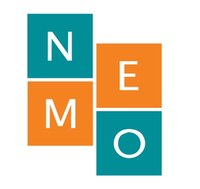
Unibo structure involved: Department of Philosophy and Communication Studies - FILCOM
Scientific coordinator: Prof. Claudio Paolucci
Unibo Team: Gabriele Giampieri; Luigi Lobaccaro; Sara Colombo; Barbara Vetturini
Project Web page: https://site.unibo.it/nemoproject/it
Erasmus+ Action type: Strategic Partnerships for school education
Project reference: 2019-1-IT02-KA201-063340
Start Date: 1 September 2019
End Date: 31 August 2022
Budget: Total: € 354,897 UNIBO: € 72,228
Coordinator: ALMA MATER STUDIORUM - UNIVERSITÀ DI BOLOGNA (IT)
Partners:
GRUPPO NAZIONALE NIDI E INFANZIA (IT)
HOEGSKOLAN KRISTIANSTAD (SE)
PEDAGOSKI INSTITUT (SI)
EUROPEAN UNIVERSITY CYPRUS (CY)
UNIVERSITAT DE VALENCIA (ES)
ASSOCIAZIONE ITALIANA PER L’ASSISTENZA AGLI SPASTICI PROVINCIA DI BOLOGNA (IT)
Summary:
All European countries now issue official educational guidelines to improve settings and provision. However, in around half of the European countries, these guidelines are restricted to settings for children over 3 years old (Eurydice Policy Brief ECEC 2014).
Unitary ECEC systems are found to be more effective in terms of the organization of services and quality assurance, whereas split systems tend to weaken the provision of high quality ECEC, because governance processes are more complicated due to the fragmentation of administrative responsibilities (key principles of a Quality Framework for ECEC [ET2020 WG ECEC]).
Lack of unitary guidelines (0-6) affects reflections on three main areas of the ECEC provision: (i) accessibility, (ii) curricula and (iii) monitoring.
NEMO project will impact on all this. A diagnosis of Autism Spectrum Disorders (ASD) is usually provided around the age of three and usually follows a developmental delay in children’s linguistic skills. So ASD seems to be a matter of 3-6 education systems. But it is not. Indeed, clear signs of impairments in the social skills that can lead to ASD can be seen and read much earlier, during embodied and prelinguistic practices between infants and caregivers, when the toddler is between 9 and 18 months old. Our methodology based on semiotics will help ECEC teachers to detect clear signs of possible future disorders of social skills, which may later lead to a diagnosis of ASD, through the observation of prelinguistic interactions between caregivers and infants and will develop in-service trainings on monitoring practices, focusing on the monitoring of toddlers’ experience of ECEC. Early detection will allow for the creation of new educational methods and tools that will improve the capacity of ASD children. Our project will show how the combination of pre-linguistic screening methodologies and effective teaching methods can reduce the gap between neurotypical and ASD children, both at the cognitive and educational levels. The combination of early observation of toddlers (0-3) and a series of educational interventions (0-6) will raise awareness about the need for a unitary system (0-6) and for a set of policies aimed at creating this type of organization.
NEMO project pursues the following objectives:
(i) To Allow preschool teachers to have the necessary knowledge and competences in order to be able to access children affected by ASD in the activities of the classroom;
(ii) To introduce and recommend pre-primary teachers curricula into a unified system ISCED 0 (0 - 6 years), taking into account ASD children needs.
(iii) To introduce and recommend monitoring tools and monitoring framework to create greater coherence in monitoring practices.
The project is coordinated by University of Bologna and the partnership foresees 4 Universities, a Research Institute, an association of national ECEC teachers and ECEC services coordinators and a NGO for the ASD people care. The partnership involves organizations both from split and unitary ECEC systems, in order to make comparison reports within ECEC monitoring and curriculum subjects;
The activity foresees a wide European research on pre-linguistic phase observation methodologies, ICT tools to enhance ASD children, ECEC monitoring systems and ECEC curricula.
Through a Joint Staff Training Event the participants will acquire the necessary competences to implement the pilot versions of ICT tools and methodologies to enhance the access of ASD children in ECEC services.
The involvement of local ECEC services in the testing phases and the feedbacks collected from ECEC teachers, NEMO partners will realize the following outputs:
1) Teacher Training Courses on Pre-linguistic observation and early ASD evaluation;
2) European Report on Frameworks and Recommendations for ECEC 0-6 Monitoring system implementation;
3) Toolkit ICT tools for children with ASD;
4) 0-6 Teachers curricula guidelines;
The local implementation and the European level of the dissemination will allow the project to reach the following impact:
- Enhance monitoring service quality in Europe;
- Spread best practices of monitoring qualities;
- Most effective instruments and tools for monitoring children development outcomes;
- Tools to allow ASD children to get access to ECEC services properly;
- Innovative pre-linguistic phase observation methodologies.
- Support curriculum guidelines developments at national levels, in order to successfully nurture children’s cognitive and socio-emotional development, thereby maximizing their gains from ECEC attendance.
The Output will be exploited by Universities for their master’s degrees and by European ECEC services after the end of the project. The Output will encourage European policy makers in charge for domestic ECEC systems to widen their monitoring and curricula guidelines into a unitary perspective including the innovative methodologies and tools developed by the project.
